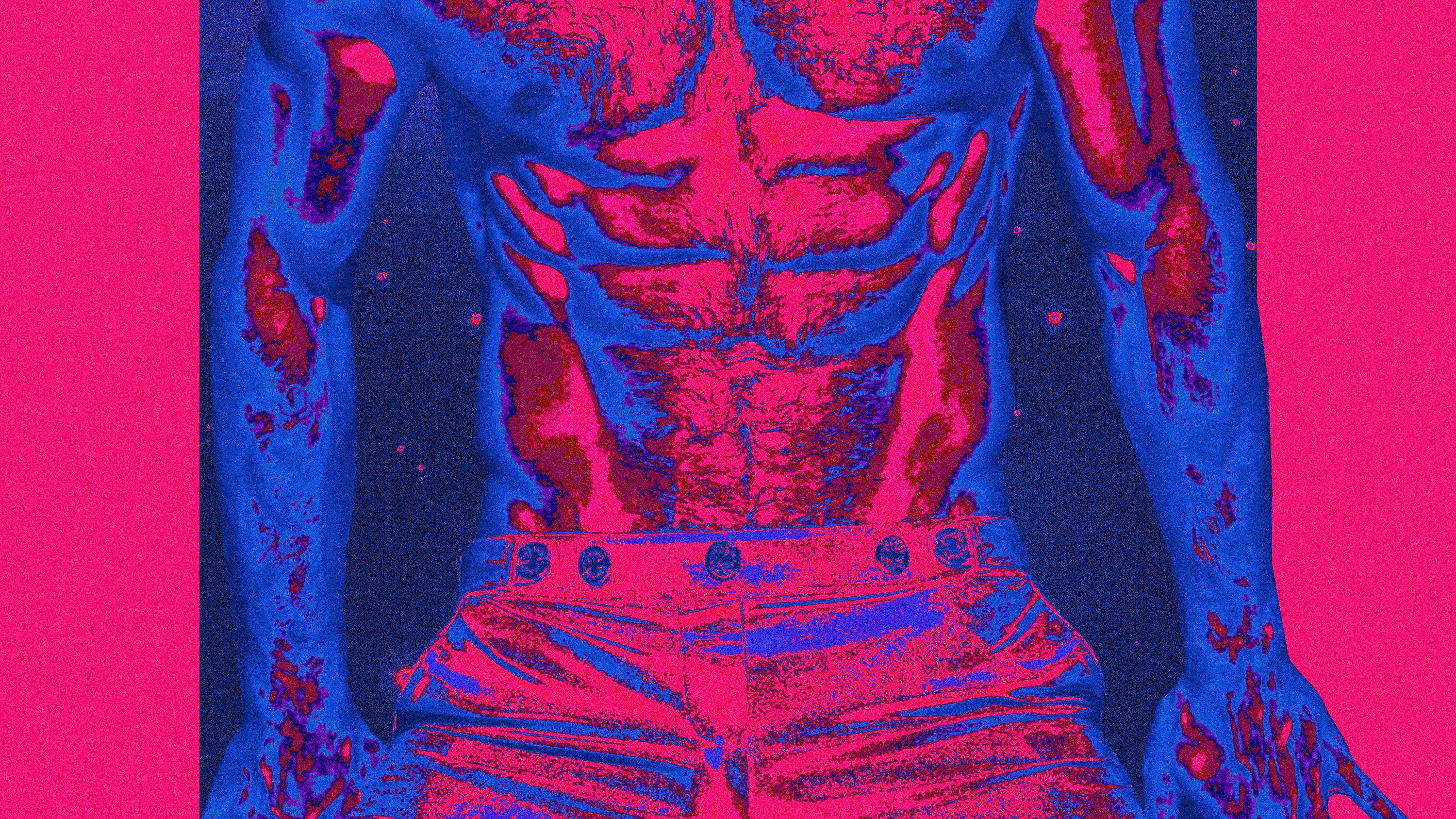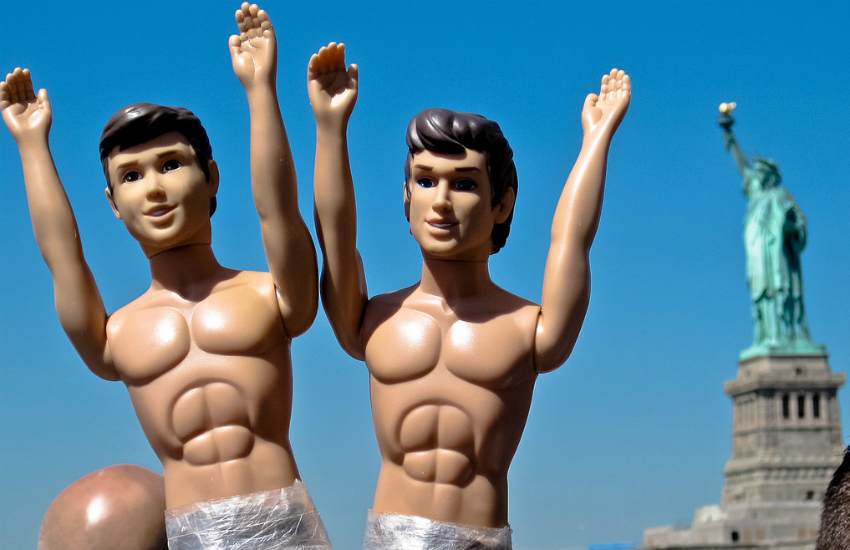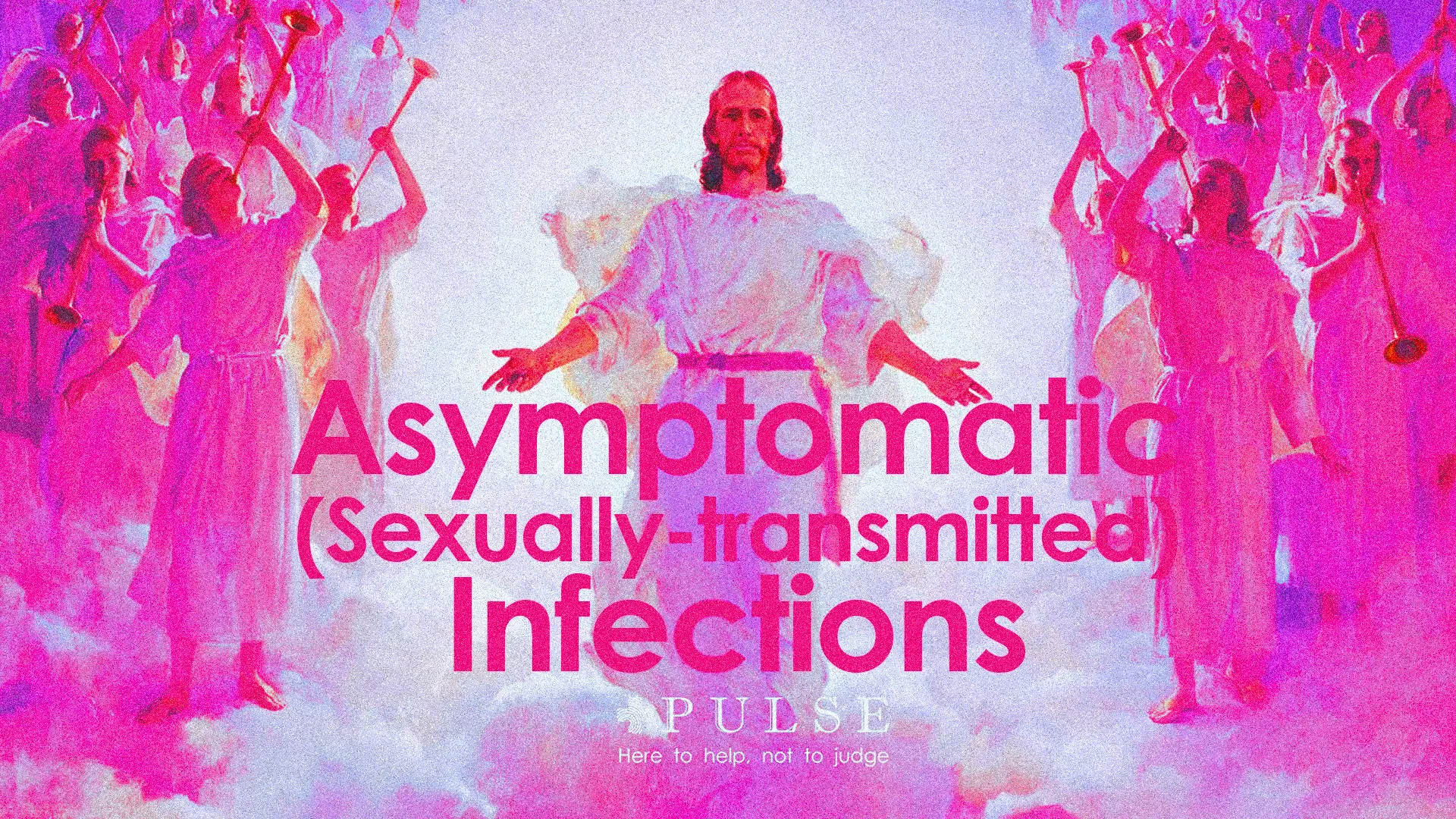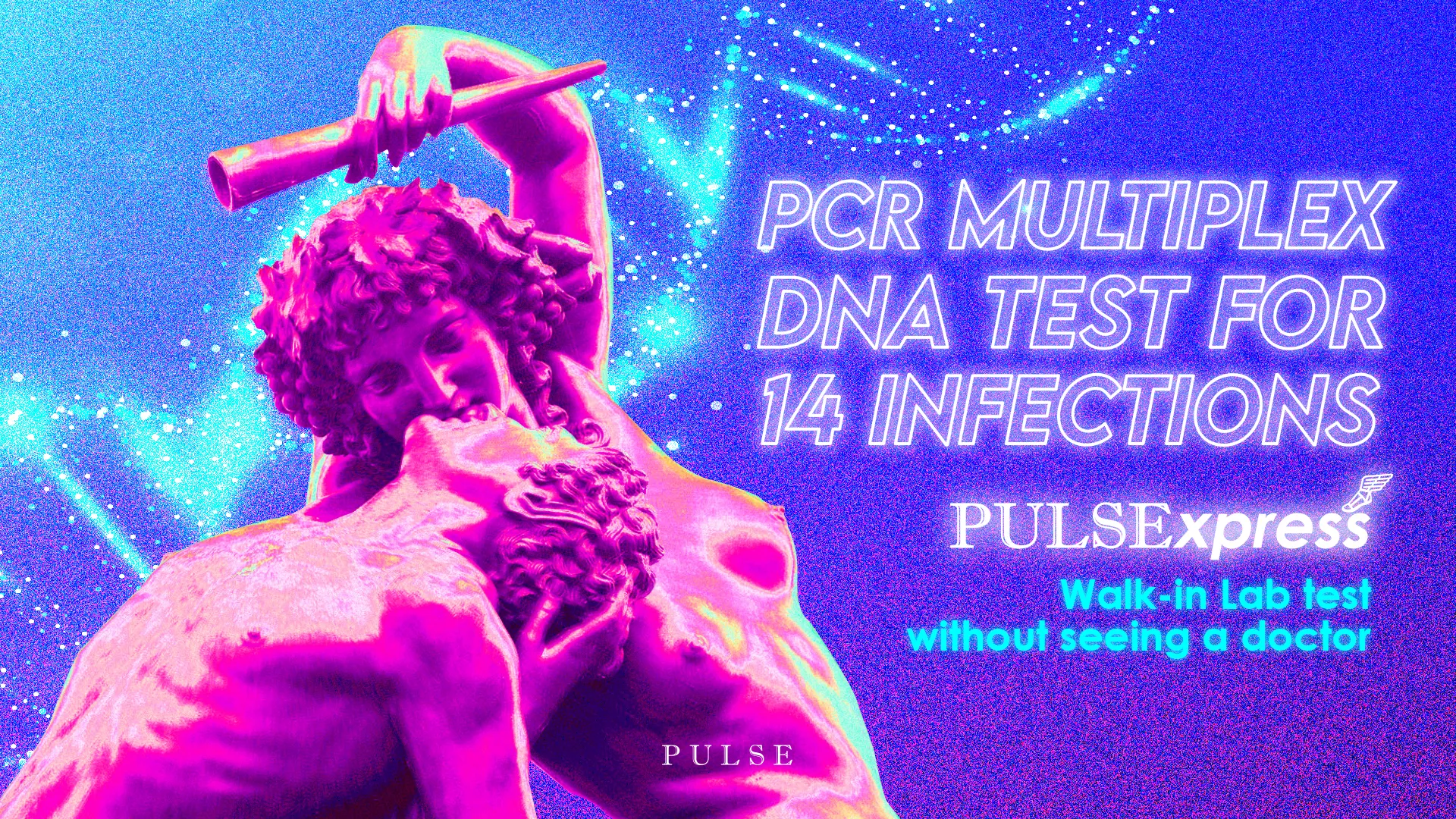Community Care: Why Do Gay Men Love Drugs?
1812
Why do I love drugs? Why do you love drugs? Why do gay people love drugs?
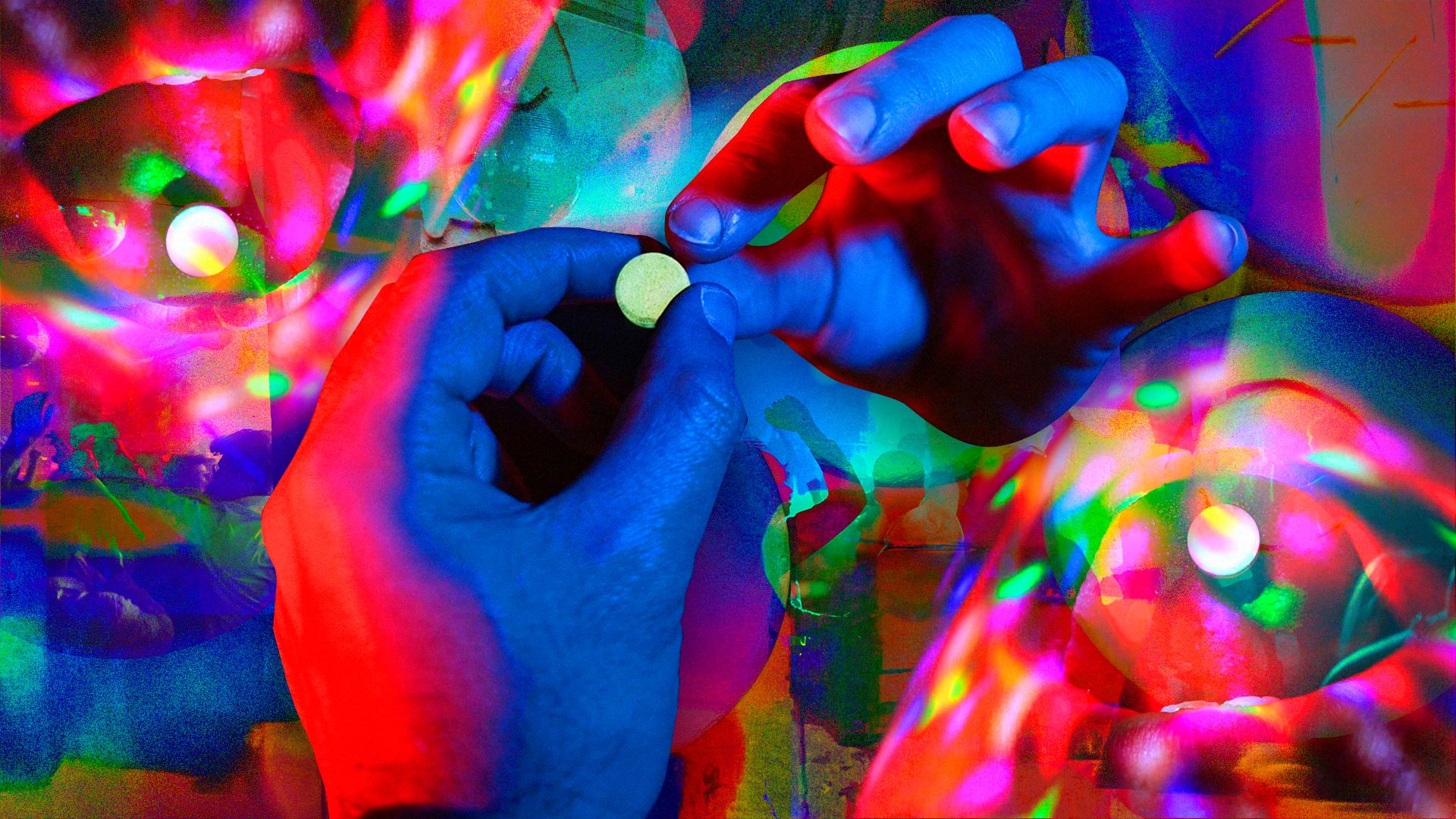
Written by Dr.Love on 24 May 2021
Medically Reviewed and updated by Dr.Deyn Natthakhet Yaemim, 31 December 2021
Why Do Gay Men Love Drugs?
|What happened to me when I first take drugs?
![]() Welcome to the drug-infused world. Yes, drugs are tied to these scenes. The drug I worried about — and sought help for — was T (crystal meth) and, like you, I felt it was a prerequisite for the sex I wanted. Six years ago, a gorgeous ex-pornstar in West Hollywood with a 10-inch dick told me that if I wanted to play, I had to “parTy.” I didn’t know what that meant, but I was clueless and eager and horny, and I went to his fancy apartment and used meth for the first time.
Welcome to the drug-infused world. Yes, drugs are tied to these scenes. The drug I worried about — and sought help for — was T (crystal meth) and, like you, I felt it was a prerequisite for the sex I wanted. Six years ago, a gorgeous ex-pornstar in West Hollywood with a 10-inch dick told me that if I wanted to play, I had to “parTy.” I didn’t know what that meant, but I was clueless and eager and horny, and I went to his fancy apartment and used meth for the first time.
Since then, I’ve enjoyed Tina in less luxurious places — in the apartments of lost and broken people, in grimy bathhouses and sex club bathrooms, with people I had fun with but don’t remember. I don’t mean to glamorize it — that’s simply the life, and it should feel familiar to those who’ve chased the thrills I’ve chased. I am grateful to say I’ve never had major problems with the drug or developed harmful usage patterns — I’m in my longest period without it and don’t have any desire to pick it up again — but I know many men who did develop major problems with it, men who like the sex I like, and the only difference between us is random chance and the good people I have in my life.
I’m now familiar with drugs — no longer clueless and eager. My knowledge and appreciation of drugs came through using and working through them, seeing their joys and downsides. Drugs, like sex, get glamorized and damned. To some, drugs are forbidden fruit — they must be wonderful. To others, they are the devil’s work, the corrupter of youth, a commodity of society’s lowlifes — they must be terrible. People have these same polarized views of sex, and like sex, drugs are both of these perspectives and neither of them — they are not as great or as terrible as anyone thinks. Drugs have led me to some scary places, but they have also led me to wonder.
Some of the best parts of queer culture come from drugs, and it would be wrong to condemn them outright. And this post would be useless to you (and to everyone reading it) if I simply said don’t do them.
With the sex you’re seeking , drugs are unavoidable. Some fisters might not admit this, but fisting is entirely connected to drugs. Inserting a hand in the vagina or rectum for sexual pleasure has probably been done for thousands of years, but what we call fisting today is much more than that — shoulder-deep fisting and forearm fucking and prolapsing and double punching — and all this, as far as human sexual practices go, is relatively new. The modern fisting scene has only been around since the ’60s and ’70s — exactly when synthetic drugs and amyl nitrates became widely and recreationally available.
This doesn’t make fisting bad. On the contrary, fisting is beautiful. But let’s call a spade a spade: fisting is largely a drug-dependent fetish. And it’s not the only one: massive orgies, circuit parties, all-night dance/sex events, and other erotic scenes are all drug-reliant, and I think some of these experiences are not complete without a mind-altering substance. I count my nights at the Black Party as some of the best of my life, and these nights have never been sober. You shouldn’t do Black Party sober — it’s not meant to be done sober.
We must admit that beautiful things come from drugs. Disco, Gay Brunch, house music, drag — can you imagine these things without drugs? If you’re going to explore the wonders of our world — and you should — you will likely experience some of it while getting fucked up. Queer culture is a drug-friendly culture. Drugs are such a part of gay male culture in particular that they are inseparable from some of our favorite activities.
|Finding informations about drugs.
![]() IMost information you’ll find online about drugs has an agenda. If I type a question about a drug into Google, the first twenty links will be articles sponsored by rehabs and addiction centers, which pay large sums of money to Google to appear first, and these articles make everyone feel like an addict — recovery for them is a for-profit business. The rest of the articles will be “professional” studies, non-profit organization pages, websites for concerned parents, 12-step group-finders, and chat forums where strangers who should not be trusted write about their experiences with drugs. Most of these websites will reflect antiquated beliefs about addiction and substance use — they will not feature current, progressive theories and will generally pathologize all use as harmful. The anonymous chat forums are maybe the only helpful items on this sad list of resources, because you might stumble into some useful information, but you’re just as likely to find info that is patently false.
IMost information you’ll find online about drugs has an agenda. If I type a question about a drug into Google, the first twenty links will be articles sponsored by rehabs and addiction centers, which pay large sums of money to Google to appear first, and these articles make everyone feel like an addict — recovery for them is a for-profit business. The rest of the articles will be “professional” studies, non-profit organization pages, websites for concerned parents, 12-step group-finders, and chat forums where strangers who should not be trusted write about their experiences with drugs. Most of these websites will reflect antiquated beliefs about addiction and substance use — they will not feature current, progressive theories and will generally pathologize all use as harmful. The anonymous chat forums are maybe the only helpful items on this sad list of resources, because you might stumble into some useful information, but you’re just as likely to find info that is patently false.
So here’s my first bit of advice: Be wary of drug information online. Even scholarly articles will parrot old myths and stigmas. I think the best sources for drug information are 1) good, trustworthy people who recreationally enjoy substances but still maintain careers and responsibilities and keep their lives together, and 2) harm-reduction and/or substance-use counselors. You will have to hunt for both.
Drugs are everywhere. Gay men enjoy drugs in the biggest cities and the smallest towns. So don’t think that your new city is some kind of drug nexus. It’s just a place, and I hope it’s an exciting and rewarding one. Every queer man exploring sexually will have to contend with drugs, and self-described sluts — people who want lots of sex and have a positive view of sexual exploration — must contend with substances more heavily. Most sluts I know are recreational drug users.
|Gay people take more drugs than non-gay people?
![]()
Statistically, LGBTQ adults are twice as likely as heterosexual folks to use drugs and almost twice as likely to suffer from a substance abuse disorder. If drugs are an integral part of our culture, they are also part of the inheritance we pass down between generations, which means we literally inherit problems. I first used meth with an older gay man. The only meth addicts I know are gay men. Younger gay men tend to learn sex from older, more established gay men. Problems get handed from one to the next.
So how do you enjoy the things you want while avoiding problematic, harmful drug use? Walking this line is hard. In fact, I think it’s one of the hardest parts of being queer. I have found the most success with moderation and harm-reduction, not total abstinence, and as I’ve grown, I’ve found that I must be selective with the people I give time and energy to.
| 29% of transgender people in America said that a health care provider refused to see them.
source: A 2018 study by the Center for American Progress
|What is harm reduction?
Harm-reduction is simple enough: Are you using drugs correctly? Are you getting them from people you trust and using them with people you trust? Do you have a disaster plan — an escape route, a way home, someone to call, somewhere to crash, whatever — if the experience goes badly and you need to leave? Do you have someone nonjudgemental who you can talk to about your experimentation? Do you have good people in your life — friends who keep you in a healthy place, not a harmful place? Do you have a good doctor? Do you have easy access to a sexual health clinic? These are the questions you must ask before you start to explore drugs. If you have good people, good friends, good support, a good clinic, and people to talk to, you’re doing well.
You must learn from those with more experience which drugs you should not mix together — alcohol and G, for example — and what the drugs actually do. Set personal boundaries before you get started. I decided a long time ago that I would never put a needle in my arm, and I never have. It’s a boundary that I just can’t cross. I decided years ago that if I ever found myself pointing (injecting), I have to involve my parents and feel their shame and disappointment, and in doing so, I would confirm every negative view they ever held of gay men, and that’s something I can’t do. (I recommend setting a similar boundary, because needles are a dark road with few good ends.)
| LGBTQ+ community is more likely to rate their health as poor and more likely to delay getting care. ![]()
|RED ALERT!
![]() I learned the hard way to be more vigilant about my drug use during high-stress situations like having a new job or moving to a new city. If I’m going through a breakup, I’ll be tempted to use a lot, and breakups are “red alert” periods for me — months when I need to attend group meetings and have a competent therapist.
I learned the hard way to be more vigilant about my drug use during high-stress situations like having a new job or moving to a new city. If I’m going through a breakup, I’ll be tempted to use a lot, and breakups are “red alert” periods for me — months when I need to attend group meetings and have a competent therapist.
Recognizing “red alert” periods is part of the harm-reduction exercise of analyzing motives. When you think about going out for a wild night and using a drug, analyze why you want to go out and get wild. What are your motives? Are you lonely? Are you stressed about work? Are you feeling insecure? Are you trying to escape your bad feelings? Do you miss someone? When motives are negative — escapism, insecurity, anxiety, pain — it’s easier to slip into dangerous usage patterns and problematic behavior.
Motives can be positive, and positive motives tend to result in less problematic behaviors. Drugs can be used to celebrate. It’s Pride! You just got a big promotion! You’re visiting a guy you’re into and you want to enjoy a hot weekend with him. You finally have a long break from work and want to go out. You’re going to a big gay party/leather event/whatever. It’s your birthday! Positive motives serve us better. It’s okay to use drugs to enhance sex and make a fun weekend better. It’s okay to use drugs as a reward for some accomplishment or just for getting through a tough week. You’re less likely to develop a dangerous dependency when you see drugs as an enhancement or a reward rather than a crutch or an escape.
Analyzing motives is part of what some therapists call “scaling,” which is an activity that harm-reduction counselors often do with their clients — my harm-reduction counselor has done it with me. Scaling involves mapping out (even on a physical piece of paper) the feelings, scenarios, amounts, motives, and time (how long you use) that separate mild recreational use from problematic use. Doing this requires you to analyze the periods when your drug use felt manageable and when it did not, and this can give you the ability to create a mental tool, a “scale” composed of markers and red flags that alert you when using might be a good idea or a bad one.
I can’t cover all the methods of harm-reduction here — I cover some in this post, and all the ones I’ve listed are but a few — but know that, despite what many so-called experts say, self-moderation is possible for many people. Most gay men I know self-moderates their drug use. Some have more success doing this than others. In those times when we need help moderating, it’s important to seek it. This help can be professional, psychiatric, or simply friend support.
|WHO TO TRUST?
![]() I can’t overstate the importance of friends. You must surround yourself with people who inspire your healthiest habits and a positive self-image. I think this is the most necessary part of harm-reduction — having good people — and I privately suspect that this is the real reason why 12-step groups work for some people. Take away all the religious stuff (and all the toxic, cruel contingencies) and 12-step is simply a group of friends who support you.
I can’t overstate the importance of friends. You must surround yourself with people who inspire your healthiest habits and a positive self-image. I think this is the most necessary part of harm-reduction — having good people — and I privately suspect that this is the real reason why 12-step groups work for some people. Take away all the religious stuff (and all the toxic, cruel contingencies) and 12-step is simply a group of friends who support you.
As adults, selecting people can be a long and painstaking process. Kids generally don’t think much about the influence of friends because they’re thrown into social environments where they are forced to interact with others their age, but adults can choose a) how sociable they’ll be and b) who they’ll be sociable with. This is a mighty responsibility and you must make decisions that are good for your mental health. You won’t always do this successfully, and when you recognize that someone is not good for you, it’s important to learn how to let go of people. Adults have limited stores of time, money, and energy to spend on friends, so we must be selective. If people don’t make the cut, cut them out.
You need friends you can call when you’re too high and freaking out and don’t know how to get home, and since you’re a queer man, I promise that the ones in your life most likely to be these friends are other queer men. This is how we have protected each other for generations.
You need a lovely night on drugs — most people do — but you also need to work, sleep, love, pay bills, and be as healthy as you can. It’s possible to have all this. Find and learn from the people who do.
When you are gay, good gay friends are like your family. Research shows that social support from friends and family, anti-discrimination policies and inclusive health care can help limit and reduce the damage. So? More? Of clinic like PULSE? Yes, immediately!
Trust PULSE CLINIC to take care of your health like other 45000 people from over 130 countries. We provide discreet professional service with high privacy. Here to help, not to judge.
|About PULSE CLINICS
![]() PULSE is an established clinics since 2015 with physicians who are treating men's health needs and supportive medical providers who are having supportive role to assist unique and specific men's need offering complete range of consultation, testing, treatment for all angles of men's sexual well- being, Men's health is a unique discipline that should be practiced by physicians and health providers comfortable with the gic, sexual, and reproductive health of men. Since it requires a multi-disciplinary approach to appropriately treat the full spectrum of men's health needs. In the last 6 years there are more than 45,000 clients from 130 countries visiting PULSE for their unique health needs, treatments and continuous care. As of 2021, PULSE has expanded from it's first branch on Silom road, Bangkok, Thailand to 11 branches in Bangkok, Phuket, Singapore, Hong Kong and Kuala Lumpur.
PULSE is an established clinics since 2015 with physicians who are treating men's health needs and supportive medical providers who are having supportive role to assist unique and specific men's need offering complete range of consultation, testing, treatment for all angles of men's sexual well- being, Men's health is a unique discipline that should be practiced by physicians and health providers comfortable with the gic, sexual, and reproductive health of men. Since it requires a multi-disciplinary approach to appropriately treat the full spectrum of men's health needs. In the last 6 years there are more than 45,000 clients from 130 countries visiting PULSE for their unique health needs, treatments and continuous care. As of 2021, PULSE has expanded from it's first branch on Silom road, Bangkok, Thailand to 11 branches in Bangkok, Phuket, Singapore, Hong Kong and Kuala Lumpur.
|Services of PULSE LGBTIQ+ Well-Being Clinics
- Providing advice, consultation and testing for male health conditions with experienced friendly medical doctor and supportive medical providers
- Check for risk factors that cause erectile dysfunction problems.
- ED Treatment with shock wave technology, medications.
- Low testosterone and testosterone replacement therapy.
- Comprehensive lab tests for body builders.
- Ejaculation issues. Increase semen volume.
- Sperm count.
- Penile irritation, rash and redness.
- Sexually-transmitted infections screening, diagnosis and treatment.
- Anonymous HIV Testing
- Rapid accurate screening for HIV, Hepatitis A B C virus, Syphilis
- STIs DNA test (NAAT PCR) for 7-14 infections at one test using urine specimen
- STIs DNA test (NAAT PCR) for 7-14 infections at one test (throat, anal, rectal swab)
- PrEP and PEP for HIV prevention.
- buy PrEP online
- Problems with urination, prostate conditions which cause erectile dysfunction in the adult men and elderly.
- Enlarged prostate.
- Prostate Cancer Screening
- Peyronie's disease. Circumcision. Cosmetic circumcision.
- Hypertension, diabetes, complete blood count.
- Emotional conditions or stress that affect sexual activity.
- Mental health consultation.
|The Benefits of Modern Sexual Well-Being Clinic
![]() The goal of modern Men's sexual well-being clinic is to provide
The goal of modern Men's sexual well-being clinic is to provide
- the up-to-date information, medical and non-medical services to improve people' quality of lives in both in the city and rural area stigma-free services
- non-judgmental encouter
- comprehensive and holistic services
- most convenient services that gives best environment to the people
- confidentiality comes first (no gossiping nurses or waiting in the hall for everyone to see)
- personalized and customized treatment
|Telemedicine and online clinic
![]() This is exactly the area of healthcare that telemedicine seeks to address. By providing personalized care to patients within the privacy of a patient's home, telemedicine companies are able to deliver healthcare services to patients seeking consultations regarding topics that had previously been considered too shameful to address in a public space. These services provide patients with a simple and convenient alternative to seeing a PCP for their common healthcare needs. After a telemedicine "visit" with a doctor, the patient is prescribed medication that can then be purchased directly through the telehealth platform, all within the comfort of a patient's home.
This is exactly the area of healthcare that telemedicine seeks to address. By providing personalized care to patients within the privacy of a patient's home, telemedicine companies are able to deliver healthcare services to patients seeking consultations regarding topics that had previously been considered too shameful to address in a public space. These services provide patients with a simple and convenient alternative to seeing a PCP for their common healthcare needs. After a telemedicine "visit" with a doctor, the patient is prescribed medication that can then be purchased directly through the telehealth platform, all within the comfort of a patient's home.
Healthcare sectors that had previously been primary reliant on face-to-face consultations are beginning to shift towards telemedicine. Good sexual health clinic can offer online prescriptions for contraception, hormone therapy, common ED medications, hair loss treatment, home test kits for HIV and STDs as well as PrEP and other medication refill without the need to see a doctor at the clinic.
|References
- Justin J. Houman, Sriram V. Eleswarapu, and Jesse N. Mills Current and future trends in men’s health clinics. Transl Androl Urol. 2020 Mar; 9(Suppl 2): S116–S122.
- Jacques Baillargeon, Yong-Fang Kuo, Jordan R Westra, Randall J Urban, James S Goodwin. Testosterone Prescribing in the United States, 2002-2016. JAMA . 2018 Jul 10;320(2):200-202.
- Faysal A Yafi, Lawrence Jenkins, Maarten Albersen Erectile dysfunction. Nat Rev Dis Primers . 2016 Feb 4;2:16003. doi: 10.1038/nrdp.2016.3
- Undertreatment of erectile dysfunction: claims analysis of 6.2 million patients. Frederick LR, Cakir OO, Arora H, Helfand BT, McVary KT J Sex Med. 2014 Oct; 11(10):2546-53.
- Impact of erectile dysfunction and its subsequent treatment with sildenafil: qualitative study. Tomlinson J, Wright D BMJ. 2004 May 1; 328(7447):1037.
- Marieke Dewitte Maastricht University. On the Interpersonal Dynamics of Sexuality. Journal of Sex and Marital Therapy 40(3) DOI: 10.1080/0092623X.2012.710181
- Beck M. How Telemedicine Is Transforming Health Care. Wall Street Journal, June 26, 2016.
Add us on Line and stay in touch.



